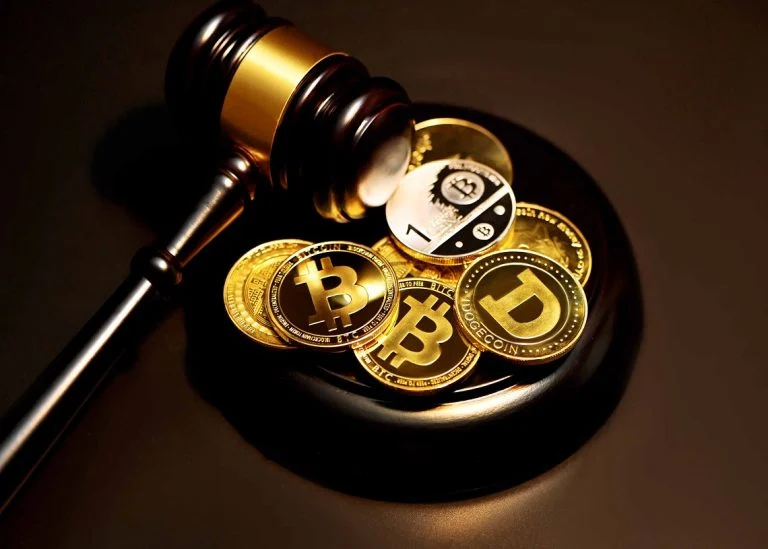Crypto wallets are a vital tool for anyone who owns or uses cryptocurrencies. They allow users to store, send, and receive digital assets in a secure and decentralized manner. However, the security of crypto wallets is only as strong as the measures taken to secure them. In this article, we will explore the importance of securing your crypto wallet and the steps you can take to keep your digital assets safe.
Why is Security Important?
The security of your crypto wallet is crucial for several reasons:
Protection Against Hackers
Hackers are always looking for vulnerabilities in digital systems, and crypto wallets are no exception. A compromised wallet can result in the loss of your digital assets, which can be devastating both financially and emotionally.
Irreversibility of Transactions
Cryptocurrency transactions are irreversible, meaning once a transaction is sent, it cannot be reversed. If a hacker gains access to your wallet and sends your digital assets to their own address, there is no way to get them back.
Responsibility for Your Own Assets
Unlike traditional banks, crypto wallets are not insured by the FDIC or any other government entity. This means that you are responsible for the security of your digital assets.
How to Secure Your Crypto Wallet
Securing your crypto wallet is essential for protecting your digital assets. Here are some steps you can take to improve the security of your wallet:
Choose a Secure Wallet
Choose a wallet with strong security features, such as two-factor authentication, multi-signature support, and a seed phrase backup. Hardware wallets, which are physical devices that store your private keys offline, offer the highest level of security.
Keep Your Private Key Safe
Your private key is the key to your digital assets, so it’s important to keep it safe. Store your private key in a secure location, such as a hardware wallet or a password-protected digital file, and never share it with anyone.
Use Strong Passwords
Choose a strong, unique password for your wallet and change it regularly. Avoid using the same password for multiple accounts.
Be Wary of Phishing Scams
Phishing scams are common in the world of cryptocurrency and can result in the loss of your digital assets. Be wary of emails, websites, or apps that ask for your private key or other sensitive information.
Use a Firewall and Antivirus Software
Using a firewall and antivirus software can help protect your computer or mobile device from malware and other security threats.
Common Crypto Wallet Mistakes to Avoid
Even with the best intentions, it’s easy to make mistakes when it comes to crypto wallets. Here are some common mistakes to avoid:
Sharing Private Keys
Sharing your private key with anyone, even a trusted friend or family member, can result in the loss of your digital assets. Keep your private key to yourself and store it in a secure location.
Using Weak Passwords
Using a weak or easily guessable password can make it easier for hackers to gain access to your wallet. Choose a strong, unique password and change it regularly.
Not Updating Your Wallet
Wallet software updates often contain security patches and other improvements. Failing to update your wallet can leave you vulnerable to security threats.
Ignoring Backup Options
Backing up your seed phrase is crucial in case of a hardware or software failure. Ignoring backup options can result in the loss of your digital assets.
Multi-Currency Wallets
Many crypto wallets support multiple cryptocurrencies, which can be convenient for users who hold multiple assets. However, multi-currency wallets come with their own set of challenges:
Security Risks
The more assets you hold in a single wallet, the greater the risk if that wallet is compromised. If you use a multi-currency wallet, make sure to take extra steps to secure it.
Compatibility Issues
Not all cryptocurrencies are compatible with all wallets. Make sure the wallet you choose supports the cryptocurrencies you want to store.
User Experience
Multi-currency wallets can be more complex to use than single-currency wallets, especially for beginners.
The Future of Crypto Wallets
As the world of cryptocurrency continues to evolve, so too will the role of crypto wallets. Here are some potential developments to watch for:
Integration with Traditional Finance
As more traditional financial institutions enter the cryptocurrency space, we may see increased integration between crypto wallets and traditional financial services.
Improved Usability
As the technology behind crypto wallets improves, we may see more user-friendly interfaces and easier ways to transact with cryptocurrencies.
Increased Security
As the value of cryptocurrencies continues to rise, we may see even greater efforts to improve the security of crypto wallets and protect against hackers and other security threats.
Types of Crypto Wallets
Crypto wallets come in several different forms, each with their own set of advantages and disadvantages. Here are some of the most common types of crypto wallets:
Software Wallets
Software wallets are digital wallets that can be downloaded and installed on a computer or mobile device. They can be free or paid and are convenient for storing small to moderate amounts of cryptocurrencies.
Hardware Wallets
Hardware wallets are physical devices that store your private keys offline. They offer the highest level of security and are recommended for storing large amounts of cryptocurrencies.
Paper Wallets
Paper wallets are physical copies of your public and private keys that can be printed out and stored offline. They are generally not recommended for long-term storage due to the risk of physical damage or loss.
Web Wallets
Web wallets are hosted online and can be accessed through a web browser. They are convenient for accessing your cryptocurrencies from multiple devices but are generally not recommended for storing large amounts of cryptocurrencies due to security risks.
Cryptocurrency Regulations and Wallets

As cryptocurrencies continue to gain popularity, governments around the world are grappling with how to regulate them. Here are some things to keep in mind regarding cryptocurrency regulations and wallets:
Legal Status
The legality of cryptocurrencies varies by country. Some countries have banned cryptocurrencies altogether, while others have embraced them.
Anti-Money Laundering (AML) and Know Your Customer (KYC) Regulations
Many countries require cryptocurrency exchanges and wallet providers to comply with AML and KYC regulations, which are designed to prevent money laundering and terrorist financing.
Tax Implications
In many countries, cryptocurrencies are considered taxable assets. If you own and use a crypto wallet to store and transact with cryptocurrencies, it’s important to understand the tax implications.
Choosing the Right Crypto Wallet
Choosing the right crypto wallet is crucial for the security and convenience of your digital assets. Here are some factors to consider when choosing a wallet:
Security
Choose a wallet with strong security features, such as two-factor authentication, multi-signature support, and a seed phrase backup.
Ease of Use
Choose a wallet with an interface that is easy to use and navigate, especially if you are new to cryptocurrency.
Supported Cryptocurrencies
Make sure the wallet you choose supports the cryptocurrencies you want to store.
Fees
Research the fees associated with your chosen wallet before making a decision.
Advanced Security Measures for Crypto Wallets
For users with significant cryptocurrency holdings, standard security measures may not be enough. Here are some advanced security measures to consider:
Multi-Signature Wallets
Multi-signature wallets require multiple signatures from different parties to authorize a transaction. This can provide an additional layer of security and prevent unauthorized transactions.
Cold Storage
Cold storage refers to storing your private keys offline, typically on a hardware wallet or paper wallet. This can provide an additional layer of security by keeping your private keys off the internet and out of reach of hackers.
Distributed Storage
Distributed storage involves splitting your private keys into multiple pieces and storing them in different locations. This can make it more difficult for hackers to gain access to your private keys.
Physical Security
Physical security measures, such as using a safe or safety deposit box to store your hardware wallet or paper wallet, can provide an additional layer of protection against theft or damage.
The Role of Crypto Wallets in DeFi
DeFi, or decentralized finance, is a rapidly growing area of the cryptocurrency space. Here are some ways crypto wallets are playing a role in DeFi:
Interacting with Smart Contracts
Many DeFi platforms use smart contracts to automate financial transactions. Crypto wallets can be used to interact with these smart contracts and execute transactions.
Staking and Governance
Some DeFi platforms require users to stake their tokens in order to participate in governance decisions. Crypto wallets can be used to store and manage these tokens.
Yield Farming
Yield farming involves lending out your cryptocurrencies in exchange for rewards. Crypto wallets can be used to manage these lending transactions.
The Future of Crypto Wallets and DeFi
As the cryptocurrency space continues to evolve, so too will the role of crypto wallets and DeFi. Here are some potential developments to watch for:
Increased Integration with Traditional Finance
As more traditional financial institutions enter the cryptocurrency space, we may see increased integration between crypto wallets and traditional financial services.
New Security Measures
As the value of cryptocurrencies continues to rise, we may see even greater efforts to improve the security of crypto wallets and protect against hackers and other security threats.
More DeFi Applications
As DeFi continues to grow, we may see more applications that allow users to easily participate in DeFi platforms and manage their digital assets.
Conclusion
In conclusion, securing your crypto wallet is essential for protecting your digital assets. The security of your wallet is crucial for protecting against hackers, the irreversibility of transactions, and the responsibility of owning your own assets. By choosing a secure wallet, keeping your private key safe, using strong passwords, being wary of phishing scams, and using a firewall and antivirus software, you can ensure that your digital assets are safe and secure.















